Can you imagine that your business has a website and has the best Seo service but you do not have any customer? Of course, this is a big problem for your business.
If you are looking for an effective way to attract customers online and promote your product, then blog writing is the best choice.
Seo services are one of the most effective tools for improving website ranking on Google. Currently, there are many Seo tools on the market and it will be difficult to choose which one is right for you. If you are still new to this field, check out our article below where we will introduce 8 of the best Seo tools in 2021.
Best Seo Tools For Beginner 2021
1. Google PageSpeed Insights
Check the speed and usability of your site on multiple devices
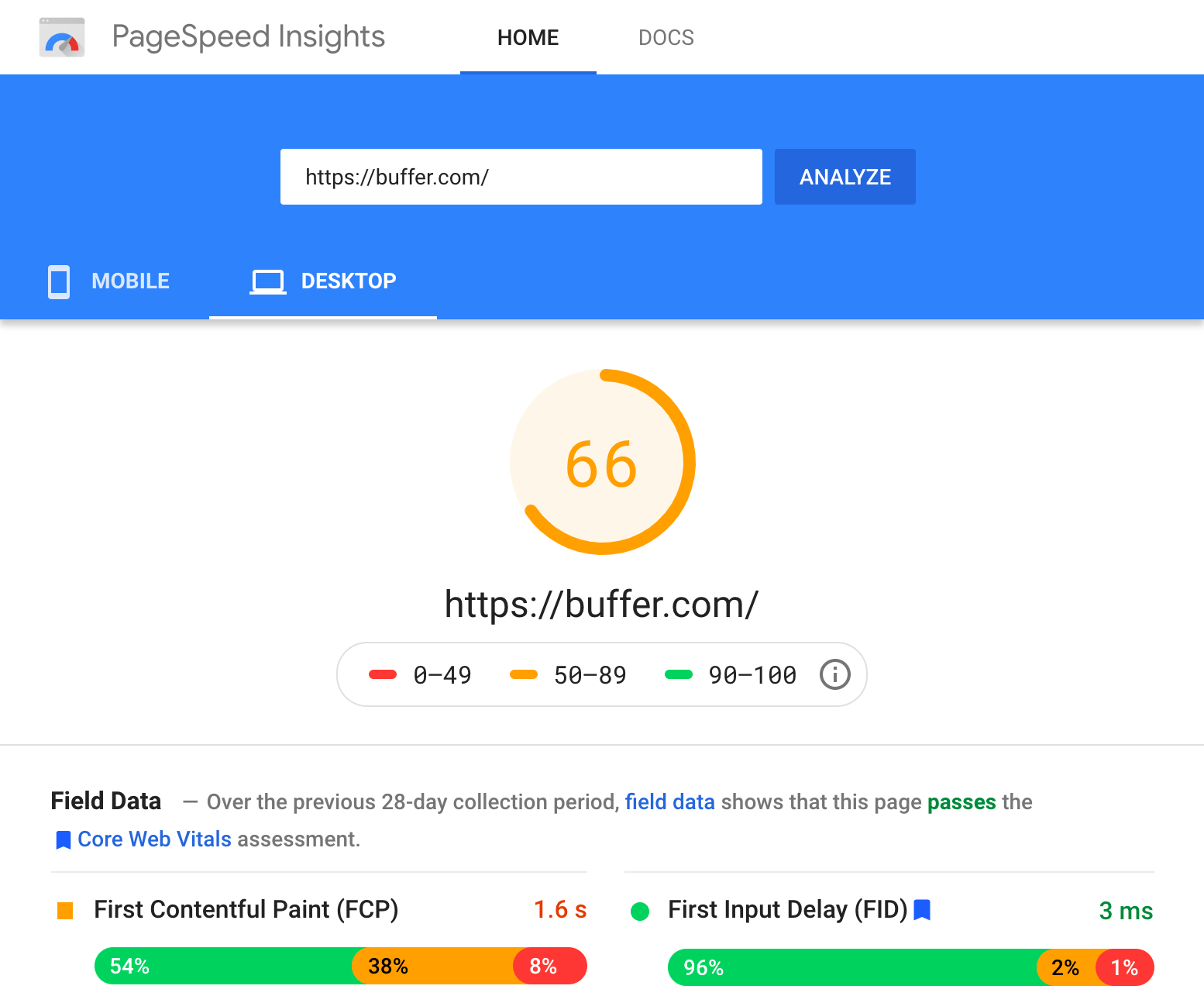
Limitations: None
Enter a URL and this tool will test the loading time and performance for that URL on desktop and mobile. It then grades your site’s performance on a score from 0 – 100. It tells you exactly how fast it takes to load the site according to different metrics, and also suggests areas for improvements.
Alternatives:Pingdom, WebPageTest, and GTMetrix
2. Ahrefs Webmaster Tools
Run a technical audit of your site

Limitations: 5,000 crawl credits per project per month
Sign up for Ahrefs Webmaster Tools, verify your website and you’ll be able to audit your website for over 100+ technical SEO issues. The tool also gives suggestions on how to fix them.
After running an audit, it also suggests areas where you can improve your internal linking, which is helpful in boosting your rankings in search engines.
This tool also allows you to see your site’s organic keyword rankings as well as who’s linking to you.
Alternatives:Screaming Frog (audit), Beam Us Up (audit)
3. Answer the Public
Hundreds of keyword ideas based on a single keyword
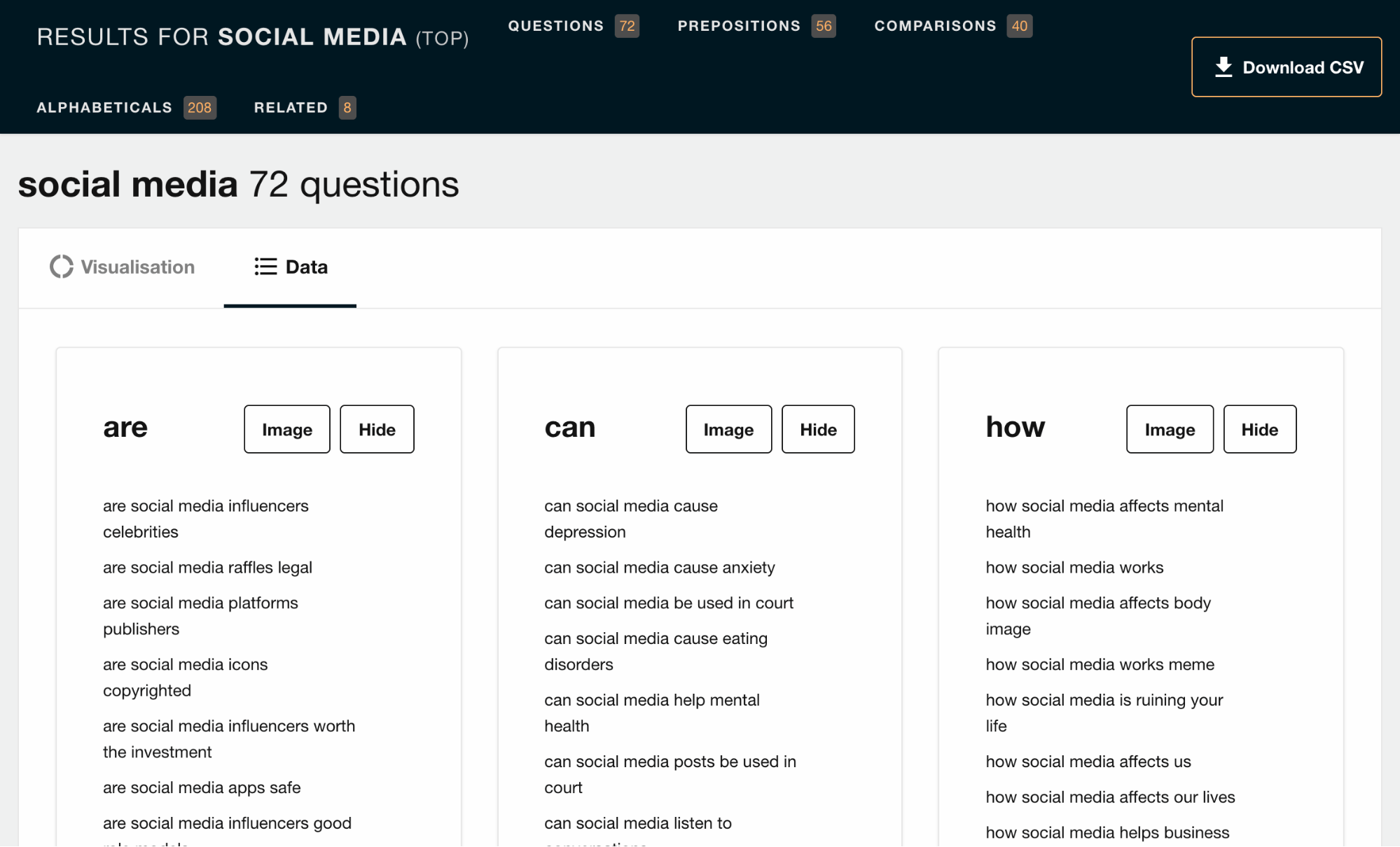
Limitations: Two free searches per day
Enter any relevant keyword, and Answer the Public will provide a huge list of long-tail keyword opportunities, plus common questions asked.
Alternatives: KeywordTool.io, UberSuggest, Keyword Sheeter, Keyword Generator
4. Google Analytics
Complete web stats and search insights

Limitations: No limitations for its usage, but queries that are sending you organic traffic are hidden
Quite possibly the most powerful free analytics tool available, Google Analytics tracks pretty much every bit of traffic you can imagine on your website—where it comes from, which page is receiving it and so on.
While it’s not purely for SEO, it’s still a helpful tool to track if you’re getting traffic from organic search.
However, Google Analytics has since stopped showing which keywords are sending you those traffic. You’ll have to pair it with a tool like Keyword Hero to uncover what’s behind “(not provided).”
Alternatives:Matomo, Open Web Analytics, and Clicky
5. Google Search Console
Constant website analysis, alerts, and error reports
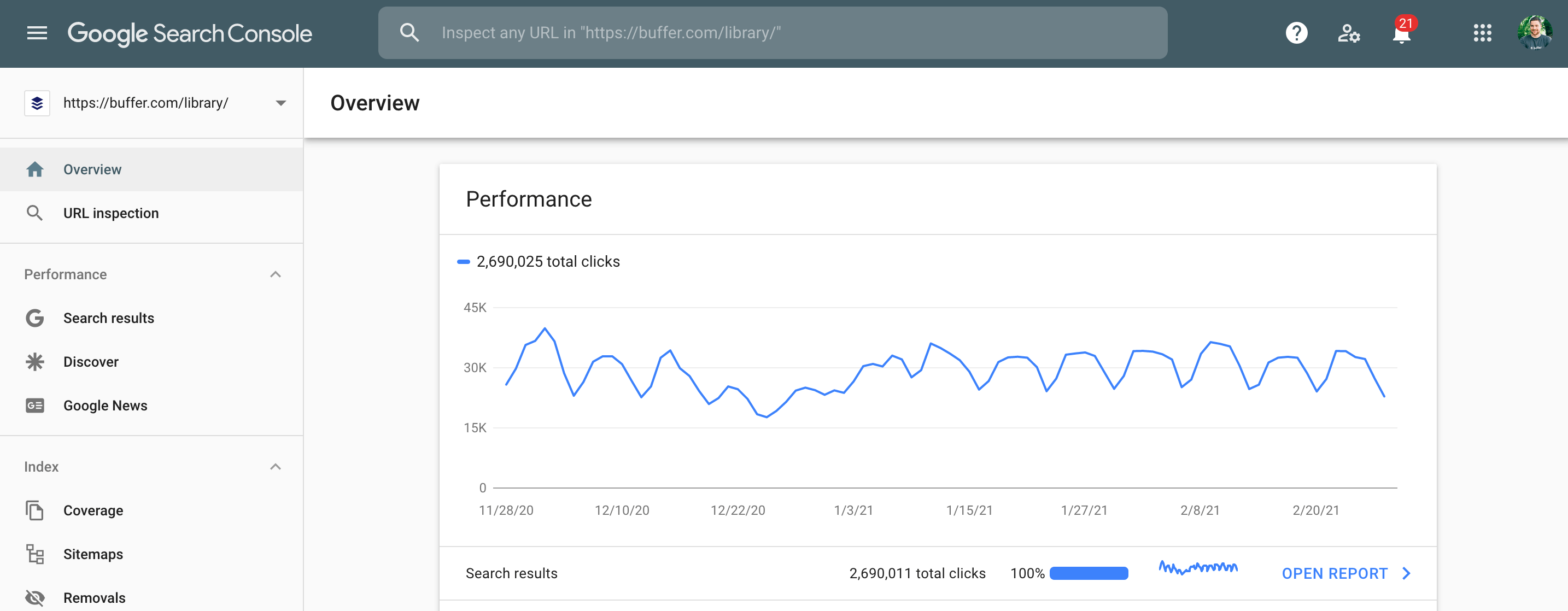
Limitations: Only shows a handful of technical SEO issues, the top 1,000 backlinks and top 1,000 organic keywords
Google Search Console gives you a taste of what the most used search engine thinks of your website. You can use it to check and fix technical issues on your website, see important SEO data like clicks, impressions and average ranking position, submit sitemaps and more.
If ranking in search engines like Bing and Yandex are important to you, then take note that they have their own “search console” too.
Alternatives:Bing Webmaster Tools, Yandex Webmaster Tools
6. Ahrefs’ Backlink Checker
Comprehensive link analysis
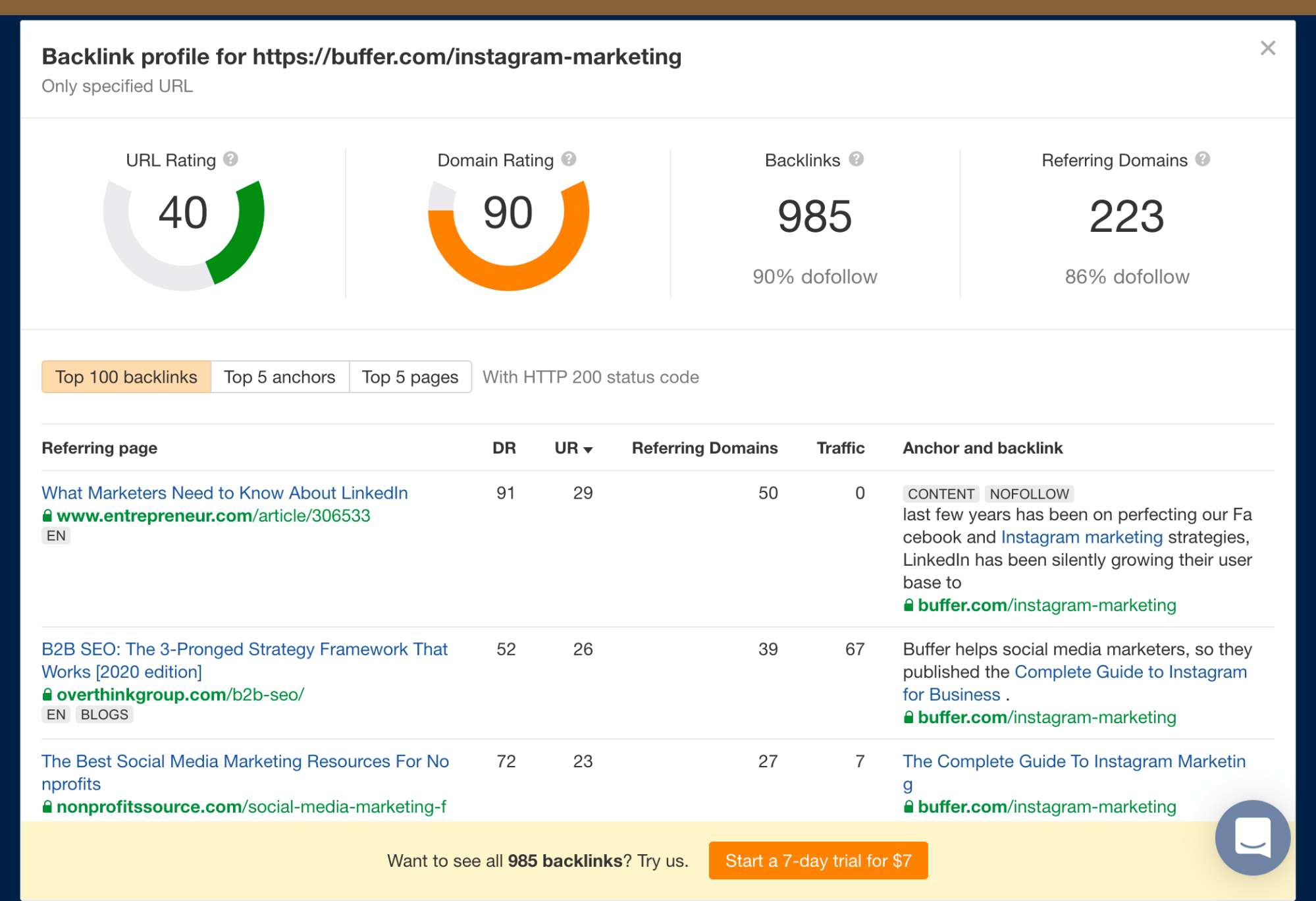
Limitations: Free for the top 100 backlinks
The free version of Ahrefs’ Backlink Checker shows the top 100 backlinks to any website or URL, along with the total number of backlinks and referring domains (links from unique sites), Domain Rating (DR), and URL Rating (UR) where applicable.
A great way to use this tool is to paste your competitor’s website and find potential link building opportunities.
Alternatives: Moz Link Explorer
7. Google Ads Keyword Planner
Know what people search for
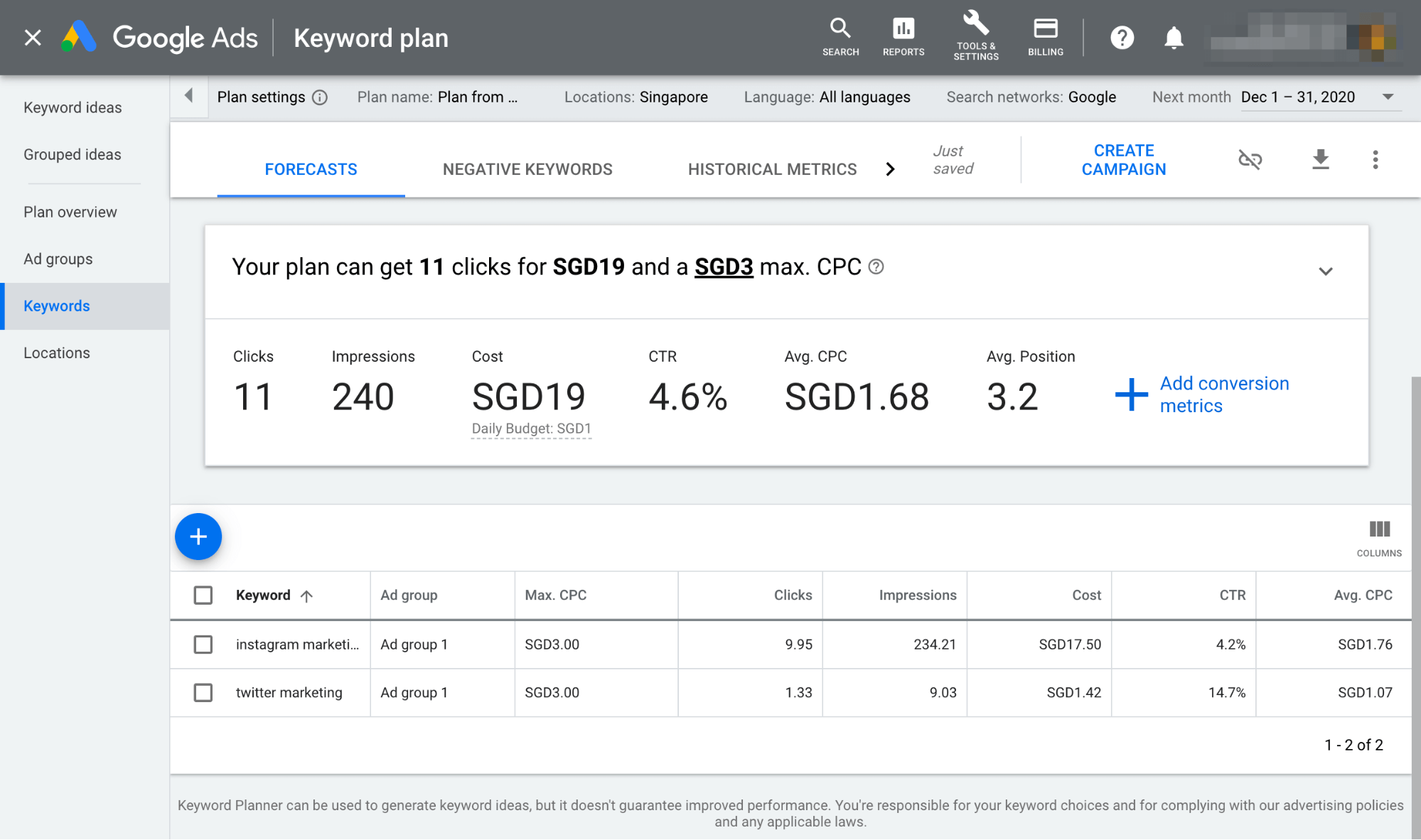
Limitations: You’ll need to run an ad campaign to see exact search volumes
Enter a keyword or group of keywords into the tool, and Google Keyword Planner will return all sorts of helpful stats to guide your keyword strategy: monthly search volume, competition, and even suggested terms you might not have considered.
Alternatives:Bing Keyword Planner
8. SERPSim
Preview how your web pages will look in Google’s search results

Limitations: None
See how your meta title and description will appear in the search results before you even publish your web page. Works for desktop and mobile.
Check for truncation issues and fix them instantly.
Alternatives: Portent’s SERP Preview Tool
9. Google Trends
See the relative search popularity of topics

Limitations: None
Google Trends shows the popular search terms over time, which is useful for uncovering seasonal variations in search popularity amongst other things. Compare multiple terms to see the relative popularity.
10. Ahrefs’ SEO toolbar
Check the broken links, redirect chains, nofollow links and on-page elements for any webpage
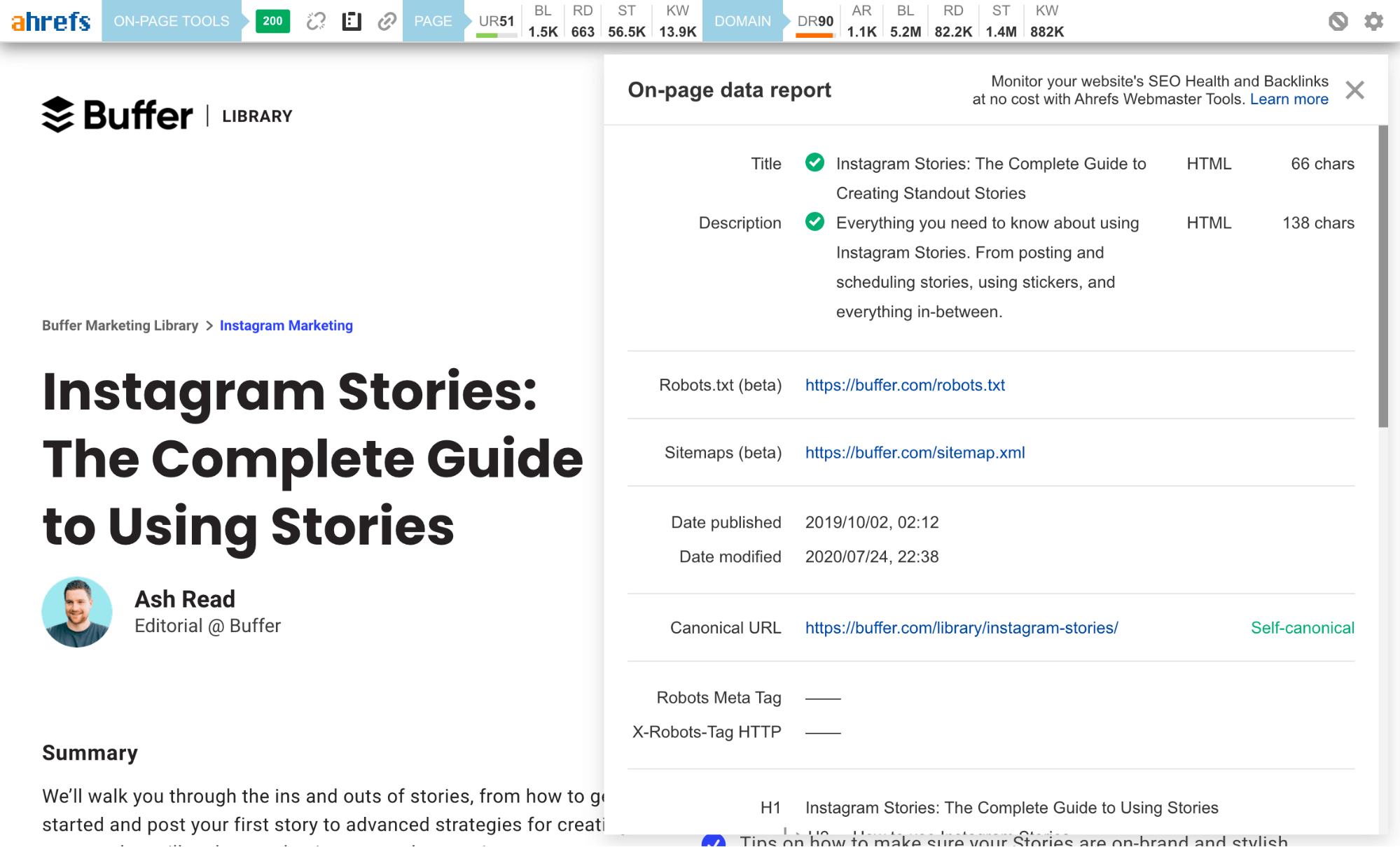
Limitations: Technical and on-page SEO features are free, but you’ll need an Ahrefs account to see SEO metrics within the SERPs
The Ahrefs SEO toolbar is a free Chrome and Firefox extension that allows you to check for broken links, trace redirect chains and highlight nofollow links for any webpage. It also generates an on-page SEO report that includes the webpage’s:
- Title
- Meta description
- Word count
- Headers
- Hreflang tags
- Canonicals
- OG tags
This makes analyzing any page much easier and faster.
If you have access to a paid Ahrefs account, you’ll also be able to see important keyword metrics like search volume, CPC and keyword difficulty within the SERPs.
best seo tools for beginners
TOP 7 MUST-HAVE FREE SEO TOOLS FOR BEGINNERS
SEO

You can never see too many lists of free tools if you’re just starting out in SEO. Tools are crucial to practicing SEO and grasping a better understanding of how the industry works, but many of them are very expensive. As a beginner, it is not necessary to start by buying a tool that costs a lot of money. Once you know what you’re looking for and know what you’re doing, then you can move on to something advanced. For now, the free SEO tools out there will absolutely get the job done. In fact, many are surprised at just how many quality tools SEO professionals give out for free. Below are some of the top choices for beginners:
- Google Analytics. A great tool to get you started. Even the most advanced professional who make SEO a full-time job are using Google Analytics. It might be confusing at first, but it will help any beginner get a sense of what is measured (website traffic, conversions, audience, etc.) and therefore what is important.
- AdWords Keyword Tool. Completing keyword research is an incredibly important aspect of SEO (you have to know what and where to optimize, after all). This tool will show you the competition, global monthly searches, and local monthly searches for every keyword you try. Even the most advanced SEO professionals turn to this tool for their research.
- Open Site Explorer. This tool will help you find link opportunities through competitor backlink research. The tool comes from SEOmoz and helps you determine if you can earn the same links that your competitors have earned (not to mention do a little bit of snooping).
- SEO by Yoast. This is my favorite SEO plugin to install on a website. It helps walk you through the different steps of SEO to make sure that you’re optimizing each and every webpage. This works best when you’re focusing on optimizing the content on your website.
- PageRank Status. You can download a free browser extension to help you see the PageRank of every webpage you visit. This will help beginners get a sense of where the website ranks on Google (it doesn’t always mean that one website is better quality than another, but it does mean it is more established). This is a great way to find authoritative link building opportunities. You can see SEO stats, site info, page info and page speed all by just clicking on the plugin.
- Google Webmaster Tools. Every SEO professional has a Google Webmaster Tools account, so the sooner beginners get on board, the better. The tool allows you to monitor the indexing of your website, keyword clicks, sitemaps, and lists of links (external as well as internal) to you site.
- Bing Webmaster Tools. You can’t forget that Bing is still the number three search engine out there, so optimizing for it is important even if you’re a beginner. Bing has a few different features than Google Webmaster Tools, but for the most part it serves the same purpose—giving you insight as to the number of clicks, links, indexing, etc.
Conclusion
Let us know your thoughts in the comment section below.
Check out other publications to gain access to more digital resources if you are just starting out with Flux Resource.
Also contact us today to optimize your business(s)/Brand(s) for Search Engines
